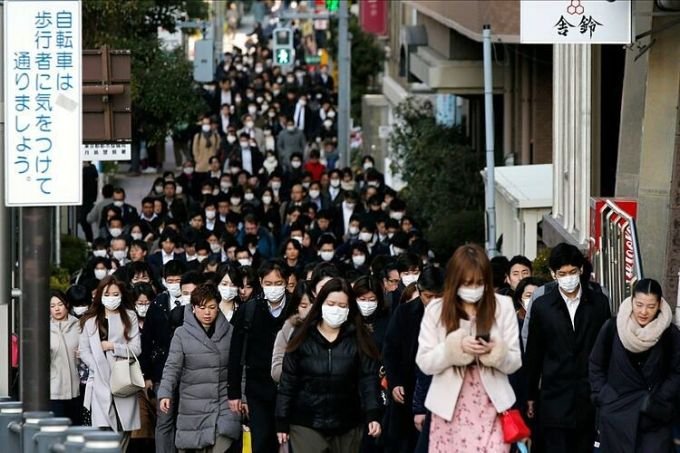A series of major economies are at risk of recession
Yesterday, the DJIA index on the US stock market decreased by more than 1,000 points for the third time in history.
It’s not hard to see why investors are worried.
To date, 4 of the world’s 12 leading economies – representing 27% of global GDP – are rushing to find ways to control the epidemic.
People go to work early in the morning in Tokyo.
Japan’s GDP – the world’s third largest economy – decreased by 1.6% in the last quarter of last year compared to the previous quarter, due to the impact of increased consumption taxes and super storms.
Analysts fear that Japan’s economy will continue to weaken this quarter, due to the widespread impact of the Covid-19 epidemic on production and tourism.
Similarly, Italy’s GDP decreased by 0.3% in the last quarter of 2019 compared to the previous quarter.
Italy has so far recorded more than 220 cases of infection and 7 deaths.

An empty restaurant in Milan.
Authorities in this country have closed public buildings, schools, and stopped sporting events in affected areas.
Germany – Europe’s largest economy – did not grow in the fourth quarter of 2019.
Economists at Berenberg bank yesterday predicted negative growth for this economy in the first quarter of the year.
Germany was forecast to return to growth in the first quarter of this year.
South Korea is also in a vulnerable situation.
This organization warns that Korea’s electronics, automobile and electrical equipment industries will face difficulties due to not being able to get the necessary components from China to maintain operations.
And as more and more people choose to stay home during the epidemic to avoid infection, consumer demand may decline.
Ethan Harris, an economist at Bank of America, said many smaller economies are at similar risk.
All of this paints a gloomy picture of the global economy’s ability to withstand the shock from Covid-19.
Global officials and business leaders are still hoping that China’s strong measures will slow the spread of the epidemic.
Under that scenario, global growth will only decrease by 0.1% compared to previous forecasts, said Kristalina Georgieva – Director General of the International Monetary Fund (IMF).
Major central banks have used most of the tools they usually use to deal with recessions since the 2008 financial crisis. Global debt is also at record levels.
Diane Swonk – chief economist at Grant Thornton said that more and more analysts share the same opinion that the US Federal Reserve (Fed) will have to lower interest rates.
`Maybe people haven’t called this a health pandemic yet. But it has become an economic pandemic,` she concluded.














Post Comment